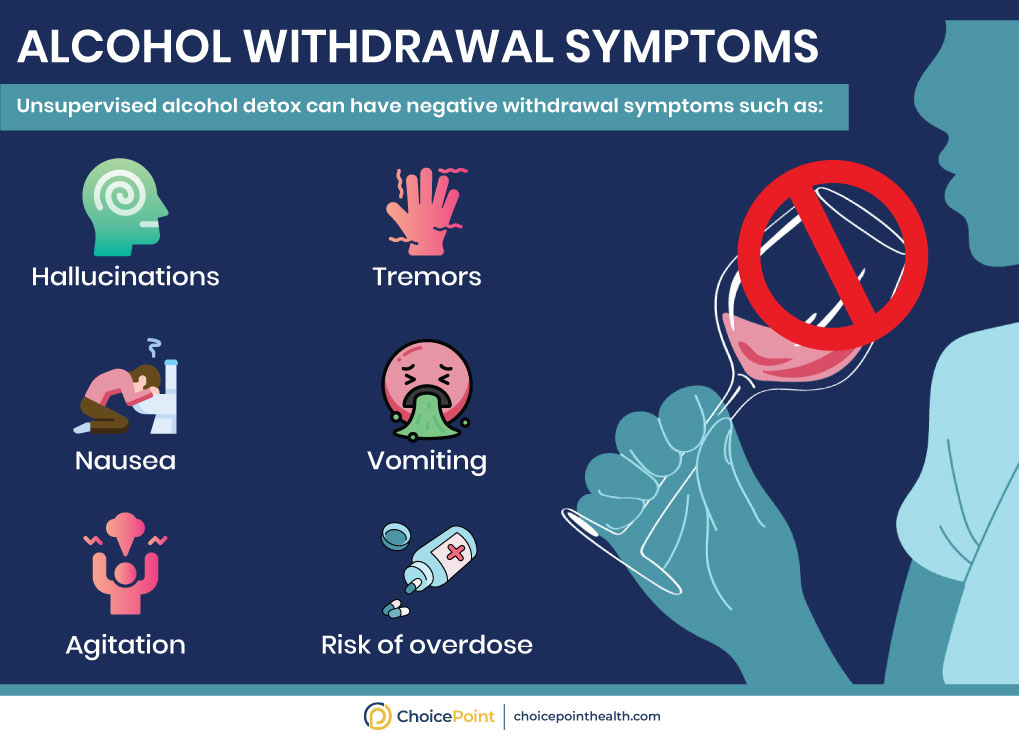Did you know that alcohol abuse claimed 141,000 lives in 2023 alone? That is not all. Polysubstance addiction is also on the rise! Polydrug addiction (abusing more than one drug) of any kind can have fatal consequences, but alcohol and Xanax abuse have life-threatening consequences. When mixed or abused together, the sedative effect amplifies, which may result in respiratory depression, leading to unconsciousness or even coma and death! Read on to learn about the consequences of this deadly combination and a way to recover before it’s too late.
If you or a loved one is suffering from Xanax addiction and binge drinking, it is best to seek professional help by calling us at 844.445.2563. Substance abuse can have fatal consequences without timely medical intervention.
Table of Contents
What is Xanax (Alprazolam) Used For?
Xanax is the brand name for Alprazolam. It belongs to the class of drugs called benzodiazepines, which act on the central nervous system (brain and nerves) to produce a more relaxed and calming effect. It is usually prescribed to treat mental health conditions such as
- Panic attacks
- Anxiety disorders.
Xanax is classified as a Schedule IV Controlled Substance by the DEA (Diversion Control Division) because of its abuse potential. So, it is best to follow the dose prescribed by your consultant.

Did You Know? It has been reported that nearly 74% of people admitted to emergency rooms suffered from both alcohol and substance use disorders.

Did You Know? It has been reported that nearly 74% of people admitted to emergency rooms suffered from both alcohol and substance use disorders.
Signs that you Or A Loved One are Abusing Xanax and Alcohol
Alcohol and Xanax abuse on their own and, when mixed, are harmful to your physical and mental health. If you suspect that you or a loved one is abusing this dangerous combination, you can look for substance abuse signs according to DSM-V criteria.
- Consuming substance in greater amounts for longer duration than intended.
- Unsuccessful attempts to regulate or cut down the use on your own.
- Experiencing cravings to use the substance persistently.
- Developing tolerance to the substance
- Experiencing withdrawal symptoms when cutting down the use
- Persistent use despite knowing the negative consequences on your mental and physical health.
You can take a free addiction evaluation test to get an idea if you are developing an addiction to Xanax and alcohol.
Alcohol and Xanax Abuse Risks: Why You Should Never Mix Them
Xanax and Alcohol both act as depressants. They both enhance the effect of GABA (an inhibitory neurotransmitter) in the brain. GABA plays a vital role in anxiety, stress, and fear management. It suppresses hyperactivity to produce a calm effect.
When alcohol and benzodiazepines (Xanax) are taken together, this inhibitory effect is amplified. The person experiences:
- Numbness
- Delay in motor coordination
- Dull state of mind.
- Increases the risk of respiratory depression, which may lead to coma or even death.
- Research also suggests that alcohol increases the toxicity of Alazopram (Xanax).
Further risks associated include:
a) Impaired Cognitive Function
Mixing Xanax and Alcohol can affect the brain’s ability to process information, concentrate, and make decisions. Furthermore, it can also impact memory, leaving a person unsure about how many drinks or tablets they have consumed.
b) Respiratory Distress
Since both substances have inhibitory effects, it is understandable that abuse of these drugs may lead to respiratory distress and apnea. A person may experience shallow breathing and reduced motor skills, which can lead to coma or even death in severe cases.
c) Liver Damage
Both benzodiazepines and alcohol are metabolized in the liver. Prolonged alcohol use leads to fatty liver (excessive buildup of fat) or alcoholic hepatitis (inflammation of the liver). Dosing on both these substances also makes it difficult for the liver to metabolize the drugs. This leads to the accumulation of these drugs in the body for a longer period.

Alcohol Withdrawal Symptoms to Know
Life-Threatening Consequences of PolySubstance Addiction
If you are still turning an eye to the dangers of polysubstance abuse, we want to bring your attention to the consequences of polydrug addiction. Abusing more than one drug amplifies the effects of one another. The combined effect becomes more damaging than abusing one drug alone. As established earlier, Xanax abuse alone can cause sedation and delayed motor response, but when abused with alcohol, it can result in unconsciousness or coma in extreme cases.
Side Effects of Xanax and Alcohol Addiction on Physical Health
Some physical effects of mixing alcohol and Xanax include:
- Dizziness
- Increased sedation
- Increased risk of overdose
- Coma
- Respiratory depression
Mental Health Implications of Abusing Xanax and Alcohol
Polysubstance abuse can have these mental health implications:
- Memory loss
- Aggression
- Irritability
- Increased Anxiety
- Hallucinations
Social Life-Related Consequences of PolySubstance Addiction
Perhaps the closest of your friends and family suffers the most from addiction. Addiction changes your mind and body. It affects:
- Your reasoning, the lines between right and wrong become blurred.
- You may unintentionally hurt your loved ones and become distant from them.
- Your work life also suffers, pushing you more towards addiction and mental health issues.
Only you can end this deadly cycle of addiction. If you commit to drug and alcohol abstinence today and get professional help, you can have a brighter tomorrow! To schedule an appointment, please call us at 844.445.2563.

Did You Know? Nearly 50% of drug overdose deaths involved multiple drug use.

Did You Know? Nearly 50% of drug overdose deaths involved multiple drug use.
How to Detox And Recover From Xanax and Alcohol Abuse?
Detoxification is the First Step Towards Sobriety. We should warn you that detoxing from alcohol and Xanax on your own or a cold-turkey approach can be very dangerous. Xanax has a short half-life, meaning the effects wear off quickly, even before it leaves the system. This results in taking larger doses, which increases drug tolerance and makes withdrawal difficult.
You can safely detox from Xanax and alcohol through a medical detox at an inpatient treatment center. You can expect the following treatments.
a) Medical Detox
In a medical detox, patients are provided with medical and psychological support to treat withdrawal symptoms. The staff makes sure that the patient remains safe and supported. You may be prescribed the following medications in a medical detox:
- Disulfiram – used to treat alcoholism
- Naltrexone – used for alcohol use disorder treatment
- Acamprosate – helps to abstain from drinking
- Flumazenil – to treat benzodiazepine overdose
- Buspirone – short-term treatment of anxiety and to manage withdrawal symptoms
To make healthcare accessible, we offer some medication through an online prescription program. Please call us at 844.445.2563 to learn more about how you can get an online prescription.
b) Tapering Off Xanax
There are no quick-fix criteria when it comes to tapering off Xanax. It depends on how long you have been abusing medication and the side effects it has caused. The general approach to tapering off medications includes:
- Done for a minimum of 8 weeks.
- The dose is gradually reduced by 25% each week. For example, if you were using 6 mg, the dose would drop to 4.5 mg for two weeks, and so on.
However, in the case of polysubstance abuse, medical detox is preferred over the tapering-off approach.
c) Dual Diagnosis For More Focused Care
Substance abuse and mental health disorders are often interconnected. Sometimes, trauma or stress leads to addiction, or addiction may lead to mental health issues such as:
- Anxiety
- Depression
- Mood swings
- Irritability
- Aggression
A Dual diagnosis is a combination of diagnoses. Through dual diagnosis treatment, both Xanax and alcohol addiction can be treated along with underlying mental health disorders at the same time.
d) Psychotherapy For Mental Wellbeing
Psychotherapy or talk therapy refers to a treatment that aims to help you identify and change negative thoughts, emotions, and behaviors. It is beneficial in polydrug addiction treatment as it helps to identify and manage relapse triggers, along with addressing the underlying causes of addiction.
Following therapy programs can improve your mental well-being:
- Cognitive Behavioral Therapy
- Dialectical Behavioral Therapy
- Individual Therapy
- Family Therapy
- Group Therapy
Xanax and Alcohol Addiction Treatment At ChoicePoint
Delaying treatment can have fatal consequences. Untreated addiction increases the chances of overdose-related deaths. Nearly 1 million people have died from drug overdose since 2000. These precious lives were lost because denial, negative stigma, or peer pressure may have prevented them from seeking help. ChoicePoint is a leading inpatient detox facility in NJ that can help your loved ones reclaim their lives from addiction. Our experienced and certified doctors approach our patients with care, empathy, and love so they can happily commit to the treatment and sustain the recovery.
FAQs About Xanax and Alcohol Abuse
People often ask these questions regarding alcohol and Xanax addiction.
Why Do People Abuse Xanax And Alcohol?
People mix alcohol and Xanax for:
- Recreational purposes
- Peer pressure
- To relax your mind.
But, addiction alters the working of the mind to produce false feelings of euphoria. Prolonged use and greater doses lead to developing tolerance against the drug, which may result in addiction.
What Can You Not Take with Xanax?
Avoid taking sedatives, alcohol, or any drugs that cause drowsiness or breathing problems. You should also avoid taking opioid medications such as codeine and hydrocodone.
Which Drinks Interact with Xanax?
Following drinks interact adversely with Xanax:
- Alcohol or any drinks containing alcohol
- Antihistamines such as cold syrups
- Cough syrups that cause drowsiness
Who Should Avoid Xanax?
People with these conditions should ask their doctor before taking Xanax:
- History of abuse
- Family history of substance abuse
- Liver disease
- Breathing problem
- Currently on prescription opioids
Can You Fall Asleep with Xanax?
Xanax can cause drowsiness, which makes falling asleep easier. Though it is not a life-threatening choice, it is not the best option. Xanax has high abuse potential. Your body will develop tolerance with excessive use. So, it is not recommended to take Xanax for falling asleep.
Who Should Not Be Prescribed Xanax?
Generally, Xanax is not prescribed to those who are/have:
- Pregnant or breastfeeding
- History of alcohol or substance abuse
- Already on prescription opioids
- Family history of substance abuse
- Taking other benzodiazepines such as Valium and Ativan
- Suffering from narrow-angle glaucoma
Medical Disclaimer:
ChoicePoint aims to improve the quality of life for people struggling with substance use disorder and mental health issues. Our team of licensed medical professionals research, edit and review the content before publishing. However, this information is not intended to be a substitute for professional medical advice, diagnosis, or treatment. For medical advice please consult your physicians or ChoicePoint's qualified staff.










Review Xanax and Alcohol Abuse: Risks, Consequences and Treatment.